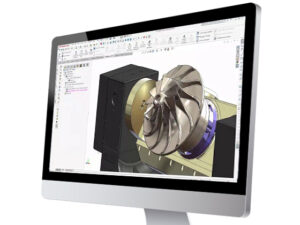Innovation in healthcare is undergoing a profound transformation, with 3D printing emerging as a cornerstone technology reshaping the landscape of medical device manufacturing. From prosthetics and implants to surgical instruments and patient-specific models, 3D printing is changing the way medical devices are designed, prototyped, and produced.
Let’s explore how some of the top medical device manufacturing companies are harnessing the power of 3D printing to drive innovation and improve patient outcomes…
Stryker
Stryker Corporation, a global leader in medical technology, has embraced 3D printing as a key enabler of innovation in orthopedic and spinal implants. By leveraging additive manufacturing techniques, Stryker can produce complex implant designs that are tailored to individual patient anatomy, improving implant fit and longevity. Additionally, Stryker’s investment in 3D printing has led to advancements in surgical instrumentation, allowing for the creation of customized tools that enhance surgical precision and efficiency.
Medtronic
Medtronic, one of the largest medical device companies in the world, has integrated 3D printing into its product development process to accelerate innovation and customization. They has developed patient-specific implants and surgical guides that optimize surgical outcomes and minimize recovery times. Moreover, Medtronic’s investment in 3D printing technology has enabled the rapid prototyping of new medical devices, facilitating iterative design improvements and reducing time-to-market.
Johnson & Johnson
Johnson & Johnson, a diversified healthcare company, has embraced 3D printing as a means of advancing patient care across its various divisions. In orthopedics, Johnson & Johnson’s subsidiary, DePuy Synthes, utilizes 3D printing to produce implants and instrumentation customized to individual patient anatomy. Meanwhile, in the field of cardiovascular medicine, Johnson & Johnson leverages 3D printing to create patient-specific models for preoperative planning and device testing, enhancing procedural outcomes and patient safety.
Zimmer Biomet
Zimmer Biomet, a leading manufacturer of musculoskeletal healthcare products, has invested heavily in 3D printing technology to drive innovation in orthopedic implants and instruments. By leveraging additive manufacturing processes, Zimmer Biomet can produce implants with complex geometries that optimize bone integration and biomechanical performance. Furthermore, Zimmer Biomet’s use of 3D printing enables the creation of patient-specific surgical guides and instrumentation, streamlining surgical workflows and improving surgical outcomes.
As 3D printing continues to evolve, it will play an increasingly vital role in shaping the future of medical device manufacturing, paving the way for a new era of personalized medicine and precision healthcare.
Learn More Here
Share
Meet the Author

